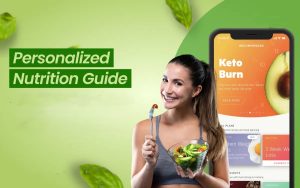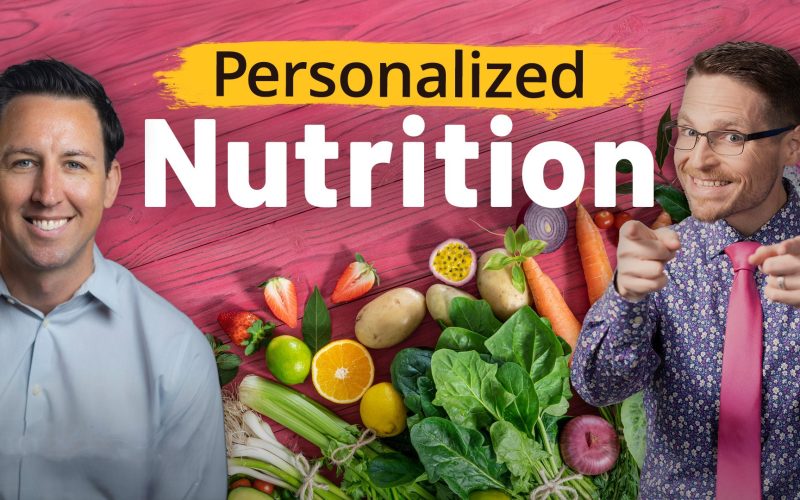Introduction
Personalized nutrition is changing the way we think about food. By nutrition trends 2025, simply following a one-size-fits-all diet won’t be enough. Thanks to new technology and science, we can now adjust our diets based on what our bodies need. This trend is not just about eating better; it’s about eating smarter.
In this article, we will look at the newest nutrition trends for united states in 2025, how personalized nutrition works, and what technologies are helping create this new way of eating. By the end, you’ll understand how personalized nutrition is changing the future of health and wellness.
What Is Personalized Nutrition?

Personalized nutrition means creating a diet that is made just for you, based on your unique needs. This approach looks at things like your genes, lifestyle, and health to give you a diet plan that’s more effective than general recommendations.
This is different from traditional diets, which assume everyone’s body works the same way. With personalized nutrition, we understand that each body processes food differently, and what works for one person may not work for another.
For example, some people may need more protein, while others may do better on a plant-based diet. By considering things like your genes and health, personalized nutrition helps you pick the foods that are best for your body.
The Role of Technology in Personalized Nutrition

Technology is playing a big part in personalized nutrition. Here are some key technologies that are making this possible:
1. Genetic Testing and DNA-Based Diets
With genetic testing, you can find out how your body processes different nutrients. These tests look at your DNA and give you information about your nutritional needs. By 2025, DNA-based diets will be easier to use, helping people choose foods that are best for their genes.
For example, genetic testing can show if you are more sensitive to carbs or if you need more Omega-3 fatty acids. This helps you create a diet that is perfect for your unique genetic makeup.
2. Wearable Devices and Health Monitoring
Wearable devices, like fitness trackers or smartwatches, are also helping with personalized nutrition. These devices track important health information like your heart rate, physical activity levels, and sleep. This data can help you adjust your diet and make healthier choices.
For example, a device might tell you if your heart rate or blood sugar changes, so you can adjust your food intake. This allows you to make quick changes to your diet and lifestyle, helping you stay healthy.
3. AI-Driven Nutrition Apps
AI-powered nutrition apps are taking personalized nutrition to the next level. These apps use data from your genetic tests, wearables, and food logs to suggest meals and snacks that match your nutritional needs.
These apps can learn your habits, preferences, and health goals over time, giving you more accurate recommendations. Whether you want to lower cholesterol, manage weight, or boost energy, these apps can provide meal plans that are easy to follow.
Trends in Personalized Nutrition for 2025

As personalized nutrition becomes more popular, several key trends are emerging for 2025. These trends show how technology, science, and consumer choices are shaping the future of nutrition.
1. DNA-Based Diets and Health Optimization
In 2025, DNA-based diets will be more common. Genetic testing will help people understand how their bodies react to different foods. This information will be used to create personalized diet plans. For example, if your DNA shows that you’re more likely to gain weight, you might be advised to follow a low-carb diet to help control your weight or lose weight.
This trend is all about getting more effective, personalized nutrition. By understanding your genes, you can make smarter choices that match your body’s needs, leading to better health.
2. Gut Microbiome Testing
The gut microbiome refers to the billions of bacteria living in our digestive system, and it affects how we process food. In 2025, gut microbiome testing will be more widely used to understand how different foods impact digestion and health.
By testing your gut bacteria, you can create a diet that supports a healthy microbiome. For example, some people may need more fiber, while others may need to avoid foods that upset their gut balance and increased risk of health issues.
3. Sustainable and Plant-Based Nutrition
As more people realize how their food choices affect the environment, sustainable diets are becoming more popular. In 2025, personalized nutrition will also include recommendations for sustainable eating.
This means your diet will not only be good for your health but also help reduce your carbon footprint. For example, plant-based nutrition might become a key part of personalized diets because plant-based diets have less environmental impact than animal-based diets.
4. Biohacking and Performance Nutrition
Biohacking is about using science and technology to make your body work better. In 2025, more people will use personalized nutrition to improve physical and mental performance. This includes tracking your nutrition alongside other biohacking techniques to improve energy, mental clarity, and muscle recovery.
For example, athletes may use 5G-connected devices to track their nutrition in real time, adjusting their food intake for better performance. This approach is becoming more popular as people try to boost their health, productivity, and overall performance.
How to Get Started with Personalized Nutrition

If you’re interested in trying personalized nutrition, here are a few steps to get started:
1. Get Your DNA Tested
Many companies now offer DNA testing that helps you understand your body’s nutritional needs. Services like 23andMe and DNAfit can tell you how your body processes different nutrients. By looking at your results, you can change your diet for better health.
2. Use Nutrition Tracking Apps
Start tracking your food and health with a nutrition app. Apps like MyFitnessPal or Yuka can help you log your meals and track your health progress. Over time, these apps will give you more personalized advice based on your habits and goals.
3. Test Your Gut Health
Think about getting a gut microbiome test to learn more about how your gut bacteria affect your health. With the results, you can adjust your diet to support better digestion and overall health.
4. Adopt a Sustainable Diet
To add sustainable nutrition to your routine, focus on eating more plant-based foods and try reducing animal products. By choosing local, seasonal, and organic foods, you can help both your health and the environment.
Future of Personalized Nutrition Beyond 2025

Looking to the future, personalized nutrition will keep growing and changing. By 2025 and beyond, new advances in AI (artificial intelligence) and machine learning will make nutrition advice even more accurate and easier to follow. Smart kitchens may use sensors to track what people eat and suggest meals that match their nutritional needs in real-time.
We may also see more use of genetic data, which will allow nutrition plans to be even more customized. These plans could help prevent health problems that run in families. As technology becomes cheaper and easier to use, personalized nutrition could become part of daily life for many people, helping them make healthier food choices and improve their overall health.g.
Comparative Table: Key Technologies in Personalized Nutrition for 2025
| Technology | Description | Example |
|---|---|---|
| Genetic Testing | Analyzing DNA to customize nutrition plans | 23andMe, DNAfit |
| Gut Microbiome Testing | Testing for gut health to improve digestion | Viome, Thryve |
| AI-Driven Nutrition Apps | Personalized meal recommendations powered by AI | Nutrino, Yuka |
| Wearable Health Devices | Tracking health metrics like heart rate, activity, and sleep | Fitbit, Oura Ring |
Conclusion
Personalized nutrition trends 2025 is transforming how we approach food, offering tailored diets based on our unique genetic makeup, gut health, and lifestyle. In 2025, nutrition technology will continue to evolve, allowing us to optimize our health more effectively. From DNA-based diets to sustainable nutrition, the future of eating is highly personalized and data-driven.
As we learn more about how food affects our bodies, personalized nutrition will become the norm, helping us make smarter food choices and live healthier lives.










